In simple words, peer pressure means when friends try to get their other friends to do what they want by using their influence over them. So, the meaning of peer pressure is when people with similar interests and ages pressure their friends into doing something that can harm them. Thus, kids do that particular thing because maybe they want to get fit into a particular group or maybe they find it fascinating to try something new for the first time.
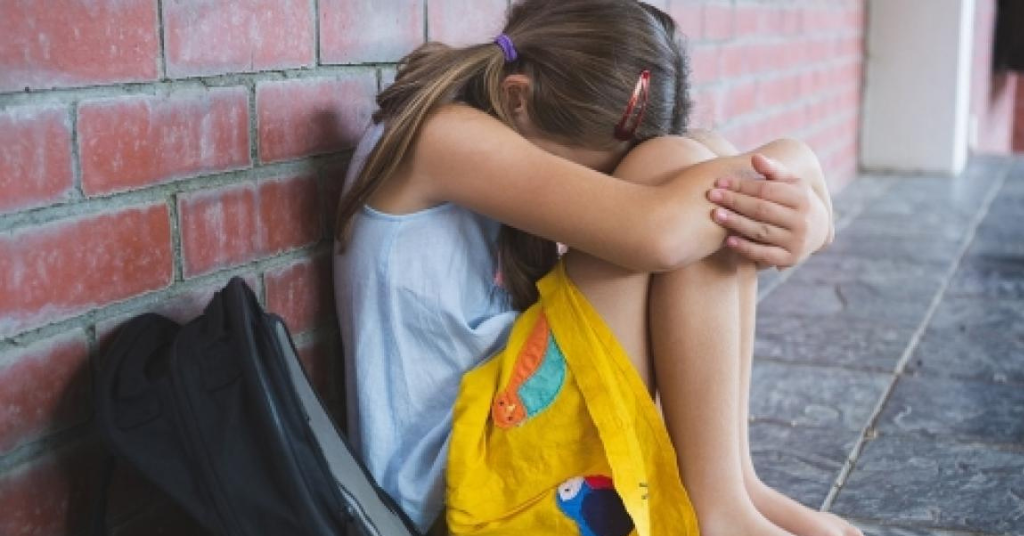
What Are The Signs Of Peer Pressure?
The following are some indications that your child may be subject to peer pressure –
1) If your child is avoiding going to school
2) Doesn’t like to visit their friend’s house suddenly
3) If your child gets image conscious
4) A child might compare oneself
5) Gets image conscious
6) Starts hiding things
What Are The Types Of Peer Pressure?
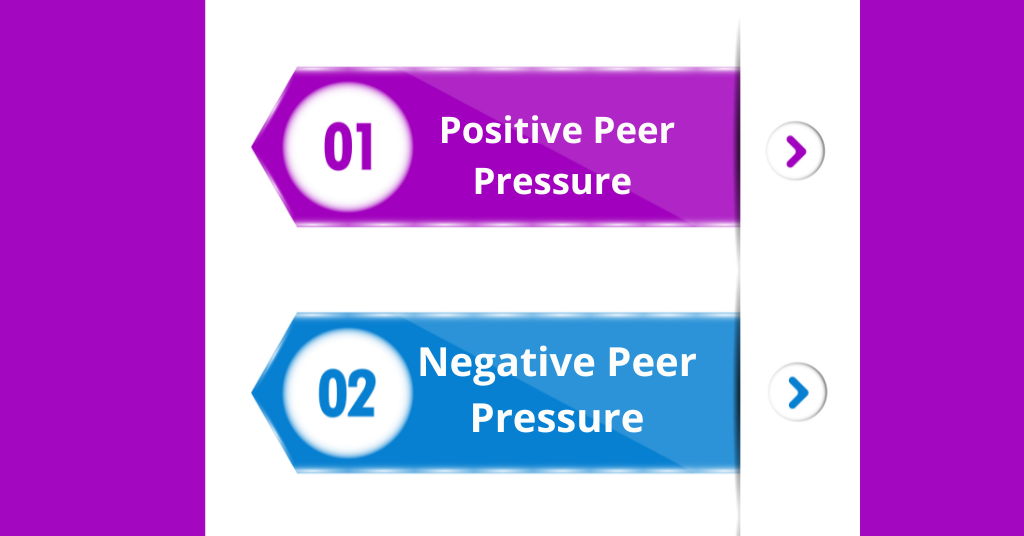
In their teenage years, most youngsters are more inclined towards friends rather than parents. Kids of such age feel that their parents don’t understand the same way their friends do. So, kids try to fit in a group or get attracted to peer group influence because they want to get accepted, seen, and heard. Moreover, there are two types of peer pressure:
1) Positive Peer Pressure
2) Negative Peer Pressure
Positive Peer Pressure Examples
The meaning of positive peer pressure is when a friend encourages them to do something better in life which will benefit their confidence and self-esteem as well. Let’s take the positive peer pressure examples –
1) If a friend encourages another friend to study hard for the exam.
2) Moreover, encouraging a friend to be independent.
3) Encouraging a friend to learn a new skill.
4) Discouraging a friend for alcohol, or drugs, or avoiding giving in to any dangerous things.
5) Friends who advise and support
Related Article: 6 Best Techniques to Deal With Strict Conservative Parents
The Negative Peer Pressure Examples
Peer pressure in this context refers to when a friend coerces someone into doing something risky that could harm them physically, or emotionally, or lower their self-esteem, body image, and mental capacity. Let’s take the negative peer pressure examples –
1) If a friend forces another friend to take up something dangerous.
2) Forces to have alcohol or drugs
3) Pushing to buy cigarettes
4) Bullying
How To Deal With Peer Pressure?
It’s critical to get ready to handle peer pressure. Kids are not aware of the meaning of peer pressure, but as parents, if you’re able to figure out the signs mentioned above or some other signs as well, you’ll be able to stop through the ways mentioned below –
1) Make Them Learn To Say ‘No’
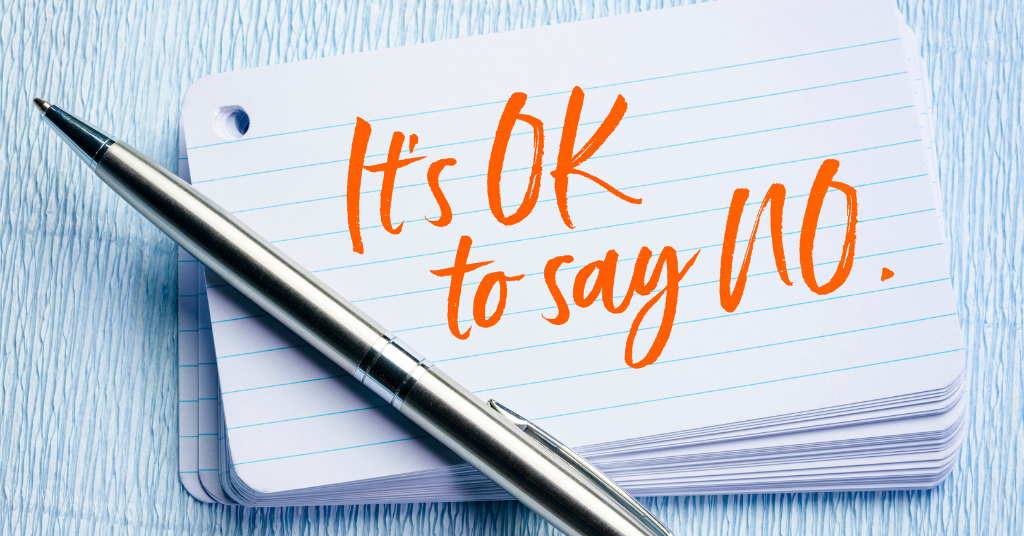
As parents, you must instill in your children the importance of following their instincts when they perceive danger or a problem. Teach them that they must always respond “No” when they perceive a problem. Teach them to address the matter by immediately stating “No” if they feel uncomfortable in any setting or if their buddies are placing them in one that makes them feel uncomfortable. They should promptly and clearly state their viewpoint on the subject.
2) Teach Kids About Right & Wrong

When it comes to right and wrong, it can be a difficult concept for kids to understand. However, by teaching them about right and wrong from a young age, they’ll be more likely to make good decisions in the future. When it comes to teaching kids about right and wrong, it’s important to model good behavior yourself. If you’re always doing the right thing, your kids will be more likely to do the same. Like if you will smoke in front of your kids, there are high chances of them doing the same with kids. Furthermore, tell kids about the ill effects of smoking and why it’s bad. Additionally, make sure to punish your kids when they break the rules to reinforce discipline in their life. This will help them learn that there are consequences for their actions.
3) Role Playing
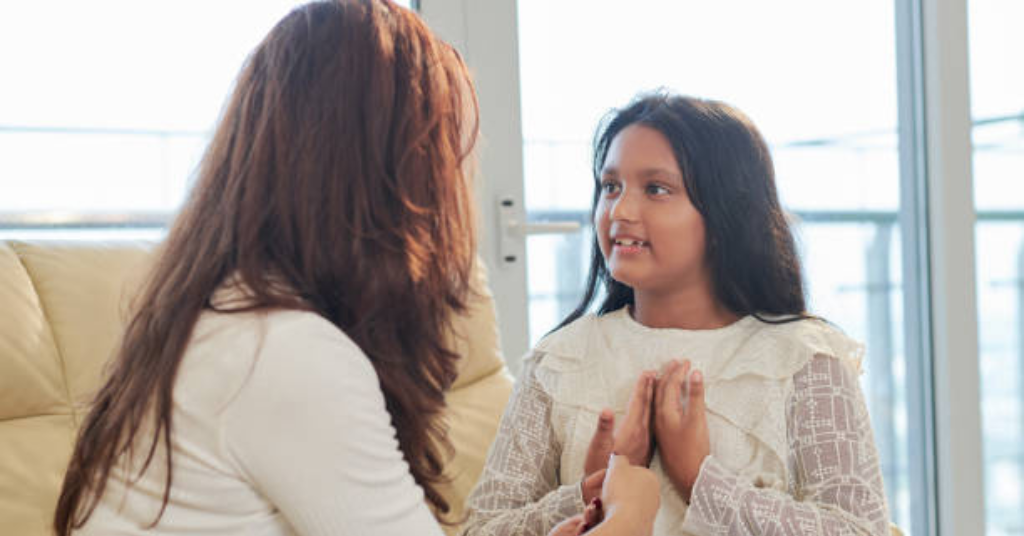
Playing out scenarios with your children will help them comprehend peer pressure’s meaning and real-world applications. You might conceive of several scenarios and ask your children to rehearse what they would do in those circumstances. Consider practicing what to do if a friend invites them to skip class or school. Ask them how they will react in a specific circumstance and what they will say to their friend. Children gain confidence in their ability to say “No” by rehearsing and role-playing. Also, teach them the importance of having a good peer group influence.
4) Stay Connected With Positive Influences
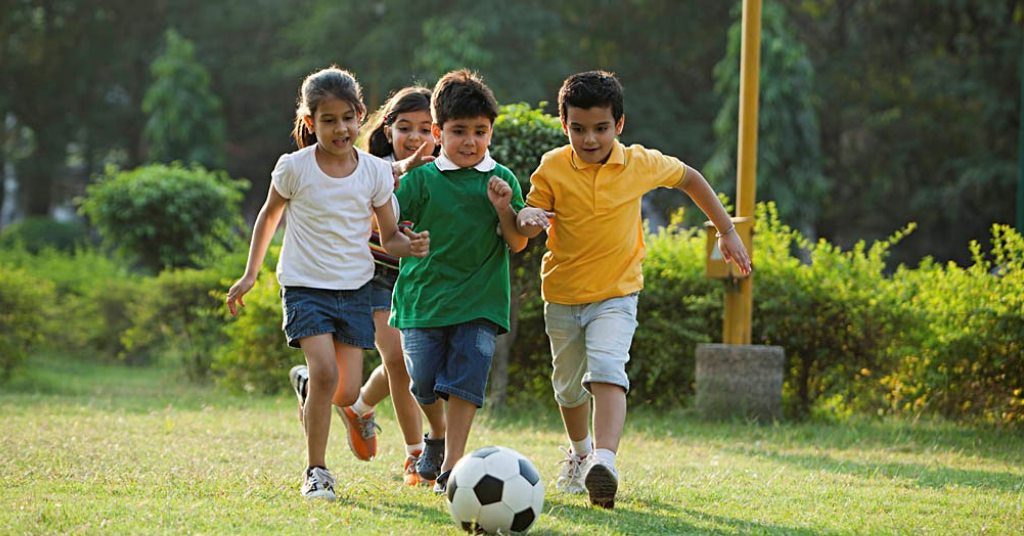
Kids are not aware of the exact meaning of peer pressure. So, as parents, your aim should be to acknowledge kids about the negative and positive influences. Tell them that if they have a positive peer group influence it will help them to build strong social ties. A positive peer group is very important for children as it can help them to develop socially, emotionally, and academically. Children need to have positive peer groups as it can help them to develop good self-esteem, social skills, and communication abilities. Additionally, it can also help them to develop a positive attitude toward learning and develop a positive relationship with their teachers and other adults.
5) Teach Them To Convey Their Emotions
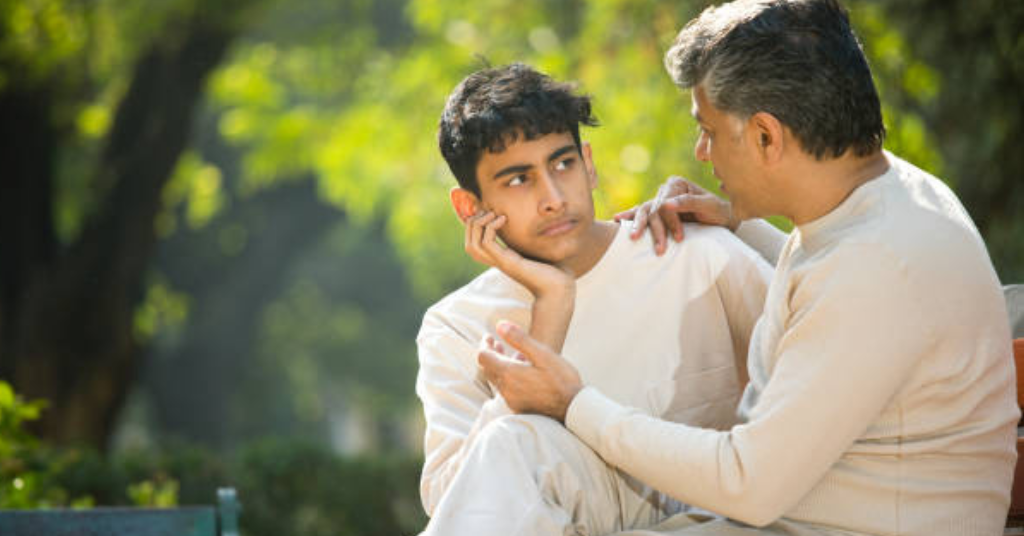
Kids stumbling into the wrong peer group influence is very normal and natural. Perhaps it was a result of an impulsive choice or a desire to fit in with the broader group. Additionally, children may find it challenging to leave a situation once they are in it if they are afraid to speak their feelings out loud. Therefore, as parents, encourage your children to share. You should be a safe place where your children feel comfortable sharing anything without fear of judgment. Because talking about the matter can help to prevent more issues and dangers. To prevent your children from hiding anything when they want to escape a situation, constantly talk to them.
6) Teach Them To Find A Good Social Group
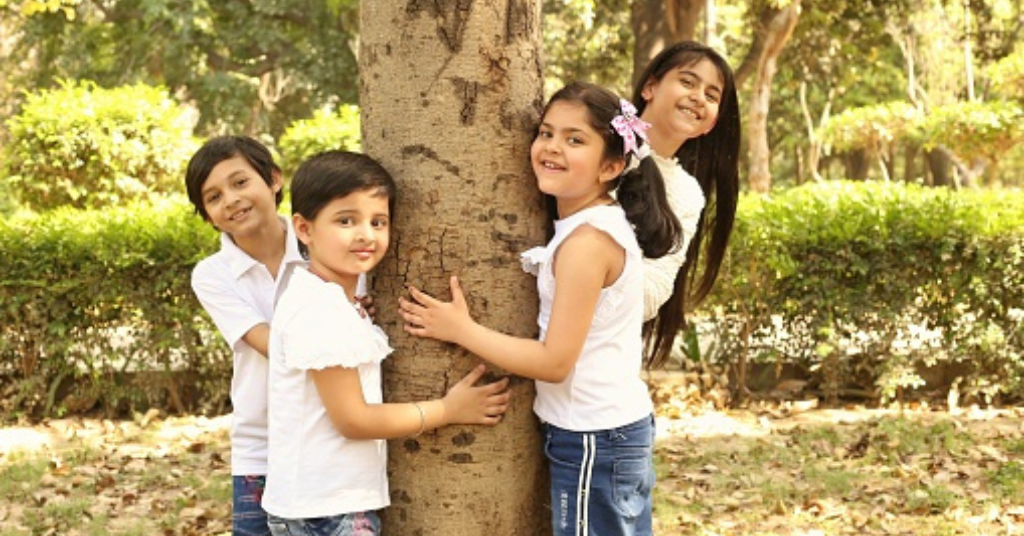
Finding good friends is one of the most important things a child can learn. Unfortunately, it can be difficult to teach children how to find good friends. However, there are a few tips you can follow to help your children find friends. One way to help your children find good friends is to involve them in extracurricular activities. This will give them opportunities to meet different people and make new friends. Additionally, you can encourage your children to participate in social events. This will allow them to meet new people and make connections. Furthermore, enroll kids in some skill-building extracurricular activities where they can meet like-minded friends. Kids who are only bounded by academics are more frustrated and get mixed with the negative peer group influence.
7) Teach Kids To Stay Tough

Teach kids the meaning of peer pressure and about peer group influence. Tell them that it can be tough to stand up to peer pressure, but it’s important to remember that they don’t have to do everything that everyone else wants them to do. Furthermore, they can choose to do something important to them, even if it doesn’t conform to the crowd. They can also have the power to change the way others see them by being themselves. If they’re feeling overwhelmed by the pressure to conform, talk to a trusted adult about how to deal.
Related Article: 10 Smart Parenting Hacks To Ease Your Parenting Journey
Take Away
Peer pressure is a real issue for kids and can be tough to deal with. Parents can help kids by providing a safe and supportive environment, setting boundaries, and providing guidance and advice. Here are some tips for parents. Make sure your home is a safe and supportive place for your kids. Establish rules and boundaries for behavior and set expectations for appropriate behavior. Talk to your kids about the meaning of peer pressure. Help your kids develop self-confidence. Encourage them to be themselves and to think for themselves.
For enriching and daily recommendations like these, you can head to the official website of PiggyRide and read about such trendy and viral topics in our blog section. Moreover, you can also send in your queries and doubts in our Q/A section and seek an immediate resolution to your worries within a few minutes. So keep following us for more enriching and worthy content!


Leave a Reply